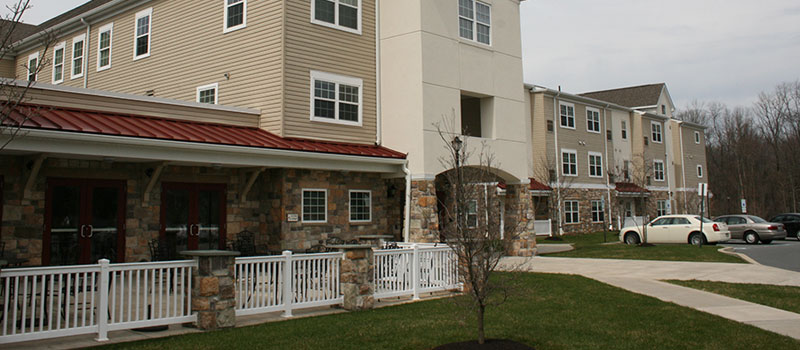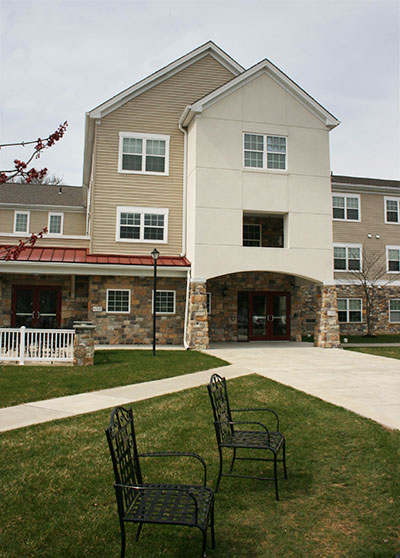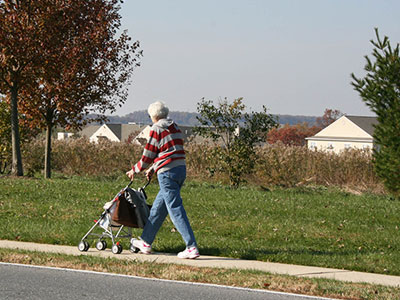Communities like Hopewell Manor in Elverson Borough provide amenities for residents ages 62 and older.
How it Works
Age-restricted housing ideally provides residents with a low maintenance, independent lifestyle that is located close to amenities. Age-restricted housing is legally permitted under federal Fair Housing laws if all residents are 62 years of age or older, or at least 80 percent of total units are occupied by a minimum of one person age 55 or older (HUD's Housing for Older Persons Act). Age-restricted housing must also adhere to HUD verification and policies, and housing must be built on connected parcels.
Age-restricted housing can include active communities for older residents who are able to maintain fully independent lifestyles, or more holistic care options, such as continuing care communities, where residents can age into housing with higher levels of support. Continuing care communities typically include a combination of independent living facilities, assisted living, and nursing homes. The latter two provide higher levels of services such as healthcare, dining, and assistance with daily activities through the highest level of care, skilled nursing.
Benefits
Meeting Housing Demand
Age-restricted housing can provide housing stock specifically to meet the growing demand of the senior population.
Supportive Amenities
Age-restricted housing can provide supportive amenities and facilities to promote a higher quality of life for aging seniors.
Aging in Community
Age-restricted housing provides seniors with housing options with fewer responsibilities such as exterior maintenance, snow-removal, and landscaping, allowing them to live in their communities as their needs change.
Housing Turnover
As seniors relocate to new age-restricted housing and sell their former homes, the transition provides opportunities throughout the housing market.
School Impacts
Age-restricted housing provides additional housing options in the community without adding to school enrollment, creating a positive fiscal impact for school districts.
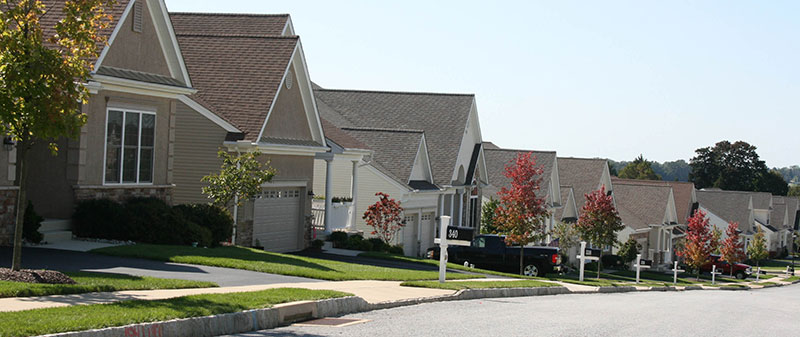
Age-restricted communities often provide lower maintenance smaller home options.
Proximity to amenities and sidewalks can help seniors maintain independent and active lifestyles.
Get Started
The County's population of 65 and older is anticipated to nearly double from 65,000 to 129,000 residents between 2015 and 2045. As this population increases, municipalities should consider the provision of housing for older adults in their comprehensive and housing plans. Municipalities that desire to accommodate age-restricted housing should ensure their planning policies are supportive of the use, and specifically permit age-restricted housing development within their zoning ordinance.
Proximity to transportation options should be a consideration for municipalities as they determine where age-restricted housing is best located. Zoning to allow residential, institutional, and key commercial uses to locate in the same area can support the development of age-restricted housing and allow for neighborhoods where services are easily accessed. Ordinance provisions such as the appropriate uses, setbacks, maximum density, and lot size, will need to be addressed to allow for more diverse housing types and community configurations.
Considerations
Age Restrictions
HUD requires 80 percent of units to have at least one resident age 55 or older in order to qualify as age-restricted housing. However, municipalities may create additional age requirements. Communities may provide for allowances in their zoning ordinances for dependents or special needs occupants under age 18 or spouses under 55 to reside with a primary resident. Municipalities that choose to enforce stricter requirements will need to consider the zoning enforcement implications of such requirements, such as inspections or reporting to ensure the restrictions imposed are met.
Provision of Amenities
Age-restricted housing should ideally be located near amenities such as health providers, public transit, entertainment, food, and green space. Municipalities should ensure their planning policies and zoning ordinances promote development of age-restricted housing in proximity to areas with such amenities.
Density and Design
As age-restricted housing is often developed at a different scale than that of medium to low-density single-family housing developments targeted at families, opponents to its construction may cite it as being out of character with the surrounding communities. Appropriate lot sizes, setbacks, garage placement, landscaping/buffering standards, pedestrian amenities, and functional open space can create a balanced community. Within the variety of age-restricted housing that is developed (from single-family lots to full-time care in a nursing home), appropriate density will also vary. Continuing care communities are most appropriate in growth areas for reasons of density and proximity to supportive services.
Balanced Land Use
While age-restricted housing will not impact school aged children, residents may require higher levels of emergency services than traditional housing types. Municipalities should investigate the level of appropriate age-restricted housing for their community, taking into consideration the need to allow for a diversity of residential opportunities and a balanced mix of uses, including commercial and industrial.
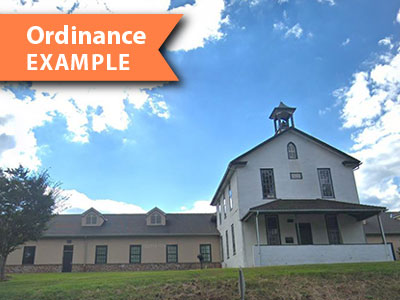
East Brandywine Township
Section 399-102.6 of the East Brandywine Township Zoning Ordinance provides standards for the development and construction of age-qualified residential communities that are permitted by special exception in some residential districts.
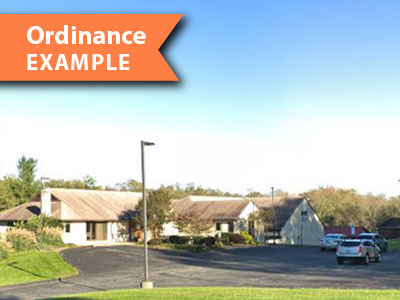
East Pikeland Township
Section 603-2 of the East Pikeland Township Zoning Ordinance provides standards for the development of continuing care communities, which are permitted as conditional uses in some residential districts.
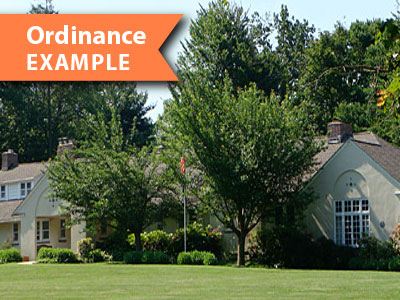
Pennsbury Township
Section 162-2033 of the Pennsbury Township Zoning Ordinance provides definitions and standards for the development of nursing home, assisted living, and retirement communities.


